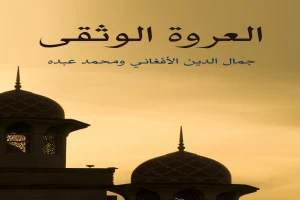Newly released
This book is new and will be uploaded as soon as it becomes available to us and if we secure the necessary publishing rights.

العروة الوثقى Book PDF
(0)
Author:
Mohammed AbdoNumber Of Reads:
35
Language:
Arabic
Category:
fieldsSection:
Pages:
492
Quality:
good
Views:
990
Quate
Review
Save
Share
New
Book Description
لقد جمعتُ ما تفرق من الفِكر، ولممت شَعْثَ التصوُّر»، أراد «جمال الدين الأفغاني» بهذه الكلمات التي صدَّر بها مقدمته لهذه الجريدة؛ أن يختصر ما يرمي إليه فكره، وما تسعى إليه رسالته التي جاب بها الأرض فما وسعته، أراد أن يبعث رسالة إلى تلك الأُمة المكلومة التائهة؛ لينتشلها من غيابات التشتُّت والفرقة، بعد أن لمس بكلِّ حواسه كيف فعل الاحتلال بها ما فعل، ولم يكد الشيخ «محمد عبده» يُجالسه ويأخذ منه العلم حتى شرب منهجه، ووطَّن نفسه على رسالته، فأصدرا معًا جريدة «العروة الوثقى»، فتولَّى الأفغانيُّ إدارتها، وأوكل لمحمد عبده تحريرها، فبعثتْ في الأمة بعثًا جديدًا رغم قِصَر مدة صدورها، وكان لموضوعاتها عظيم الأثر في مجمل الأقطار العربية والإسلامية، إلى أن تم إيقافها والتوصية بمصادرة أعدادها، بل وتغريم من يقتنيها.
Mohammed Abdo
Muhammad Abdo: An Islamic preacher and thinker. He is considered one of the most prominent figures of the modern Arab and Islamic renaissance. He was known for his reformist thought and his call for liberation from all forms of stagnation and backwardness that afflicted the Arab mind. Al-Azhar, Endowments and Sharia Courts.
Muhammad Abdo Hassan Khairallah was born in 1849 AD in the village of Nasr in the Beheira Governorate, to a father of Turkmen origin and an Egyptian mother. His father sent him to the village clerks to receive his first lessons. When he completed fifteen, he joined the Ahmadi Mosque in Tanta, where he received the sciences of jurisprudence and the Arabic language. Then the imam moved to Al-Azhar Al-Sharif and continued to study there until he obtained the international certificate.
He participated in Ahmed Orabi’s revolution against the British occupation in 1882 AD. He was sentenced to prison, then exiled to Beirut. After that, he traveled at the invitation of his teacher Jamal al-Din al-Afghani to Paris in 1884 AD, and he founded the newspaper “Al-Urwa al-Wuthqa” with him, but it did not continue to publish; As it caused trouble to the French and the English because of its constant criticism of colonialism and its call for liberation, then he returned to Beirut to study at the Royal School, and then had the opportunity to return to Egypt in 1889 AD, after Khedive Tawfiq pardoned him. After his return to Egypt, the imam worked in the judiciary, and then was assigned the position of mufti, to be the first mufti independent of his Sheikh Al-Azhar, after the custom was settled on assigning this position to the Sheikh of Al-Azhar.
Muhammad Abdo had a wide influence in his cultural and political surroundings, where he was influenced by many thinkers and political leaders, among whom were his student, the noble scholar Rashid Rida, Sheikh Hassan Al-Banna, Sheikh Muhammad Mustafa Al-Maraghi, Sheikh Ali Abdel Razek, Saad Zaghloul, Qassem Amin, and Hafez Ibrahim. And Izz al-Din al-Qassam, Muhammad Lutfi Jumaa, and Taha Hussein. Muhammad Abdo also had critical contributions in defending Islam in front of those who attacked it from the Orientalists, such as: Ernest Renan and Hanuto. The imam also wrote the giant Russian writer Tolstoy, who was very pleased with this correspondence. In 1905 AD, the imam passed away after a struggle with cancer at the age of fifty-seven years.
Read More
Book Currently Unavailable
This book is currently unavailable for publication. We obtained it under a Creative Commons license, but the author or publisher has not granted permission to publish it.
Rate Now
5 Stars
4 Stars
3 Stars
2 Stars
1 Stars
العروة الوثقى Quotes
Top Rated
Latest
Quate
Be the first to leave a quote and earn 10 points
instead of 3
Comments
Be the first to leave a comment and earn 5 points
instead of 3